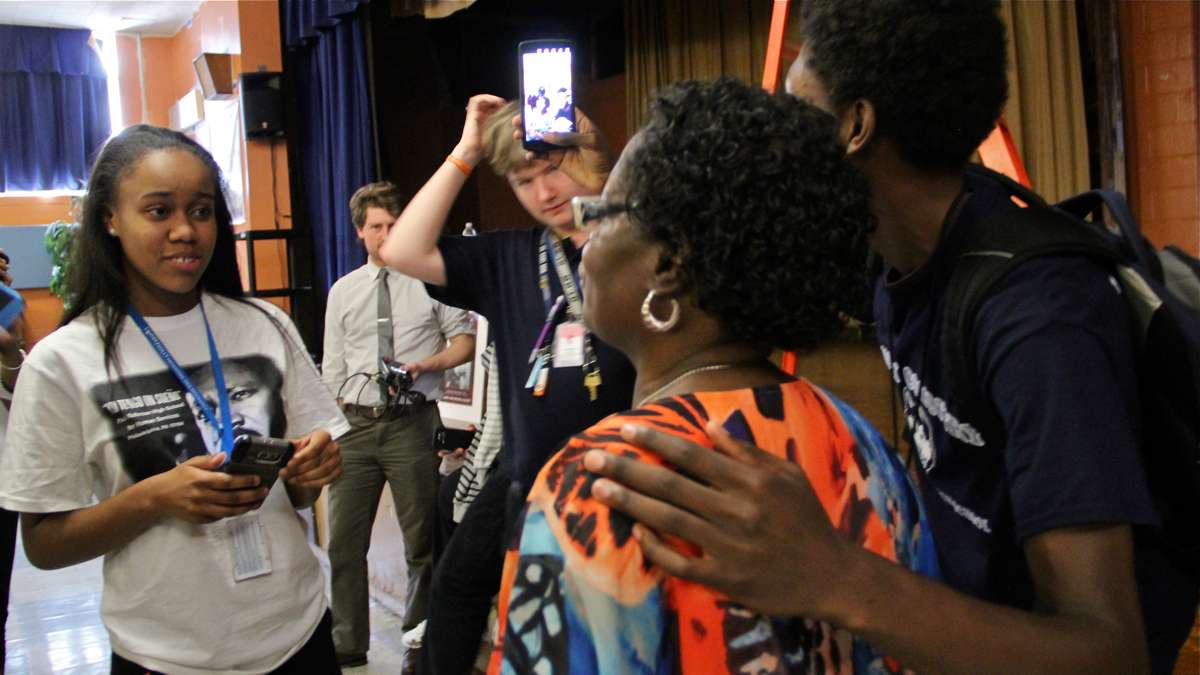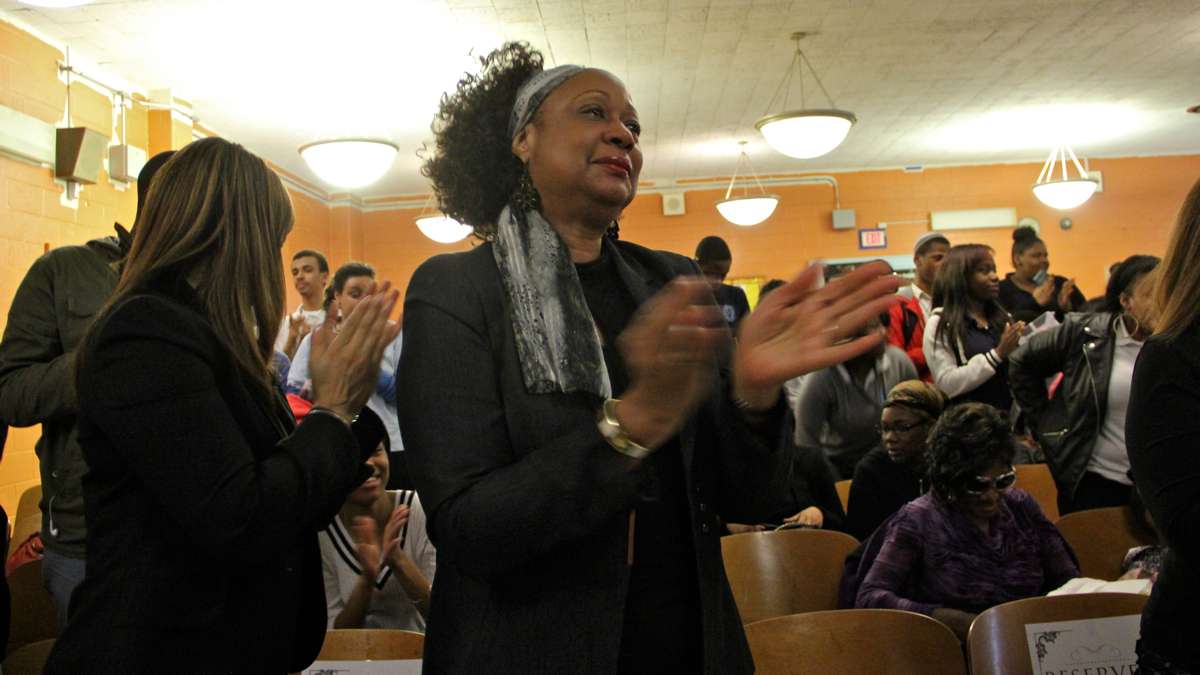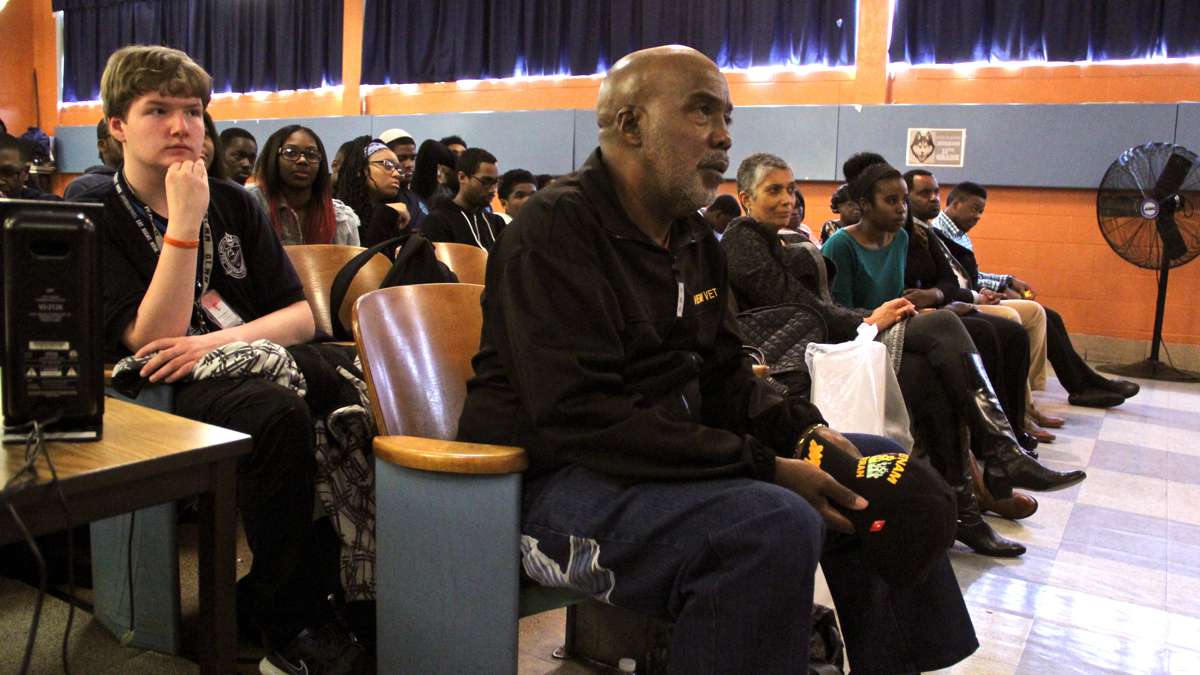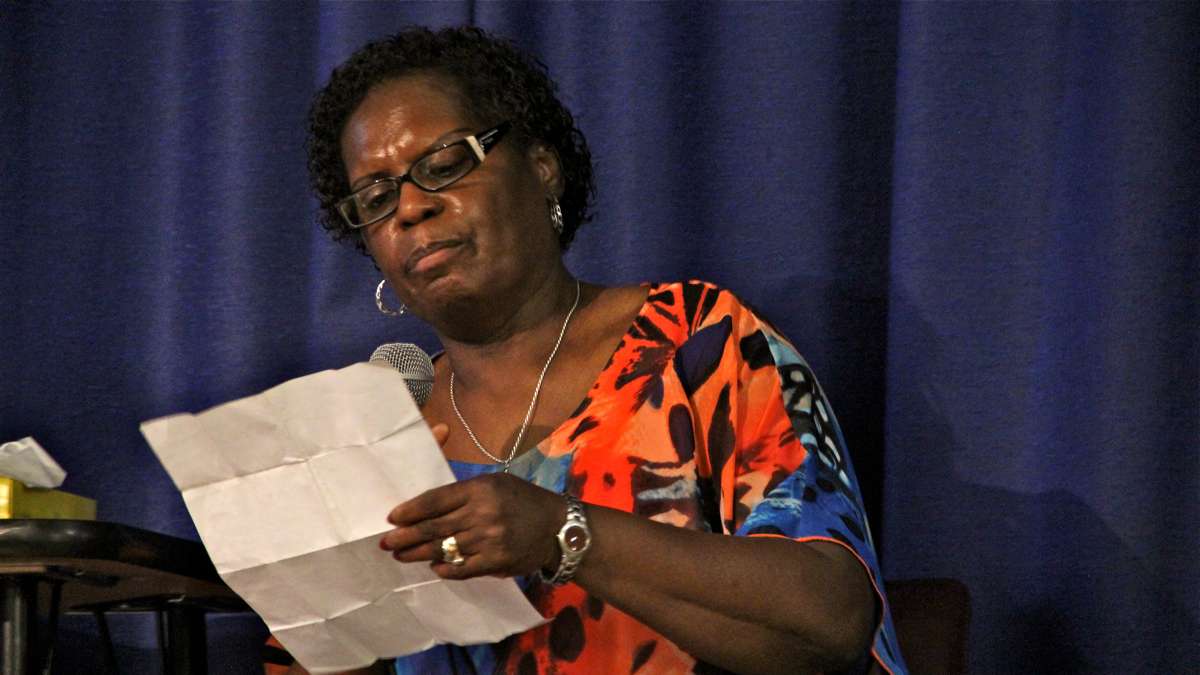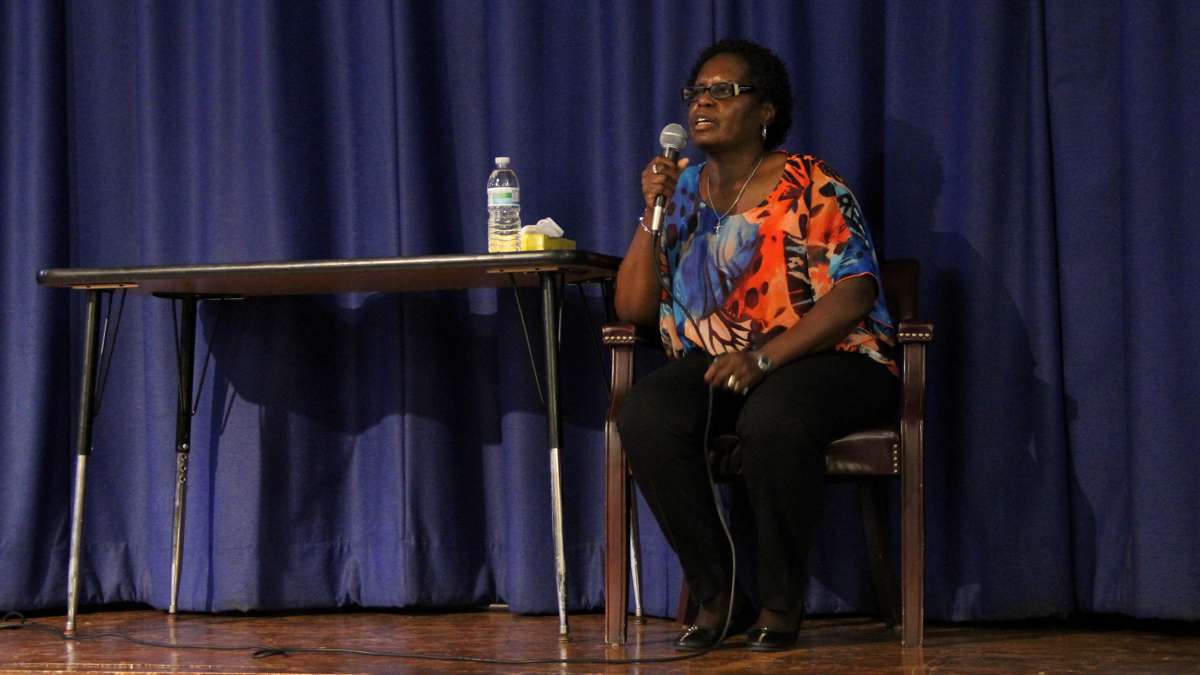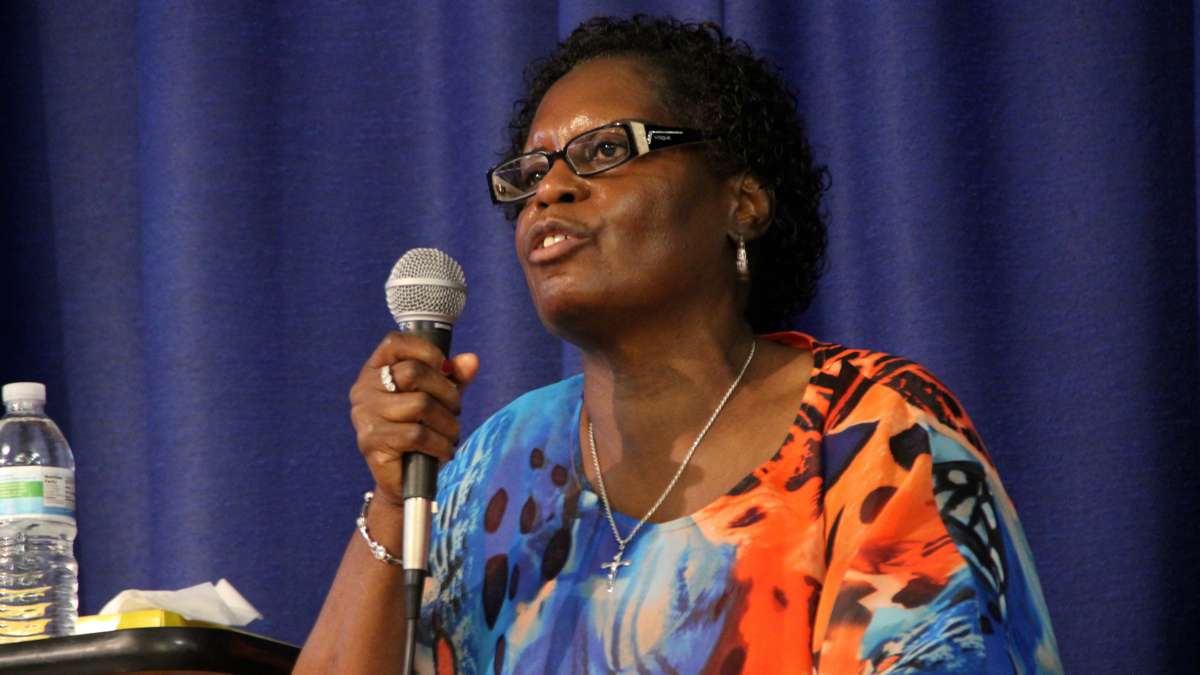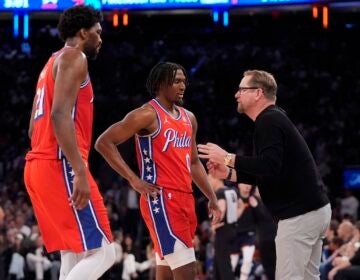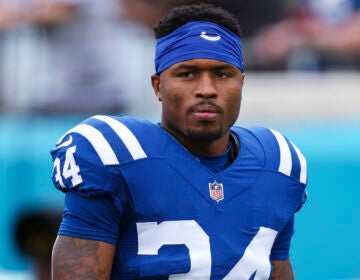’63 Birmingham bombing victim shares story of trauma, pain and inspiration with Philly kids
ListenHistory class came to life in West Philadelphia Wednesday.
A survivor of one of the most brutal atrocities of the civil rights era shared her harrowing tale with students from Paul Robeson High School.
In 1963, 12-year-old Sarah Collins Rudolph had no illusions about the palpable pulse of racism in her hometown of Birmingham, Alabama.
“In those days, the Ku Klux Klan used to drive around in bunches,” she said. “They’d put those robes on. And light fires and burn crosses.”
But nothing could have prepared her for what happened one Sunday morning in mid-September of that year at the 16th Street Baptist Church.
Before a captivated audience of history students who gathered in the auditorium of West Philadelphia’s Paul Robeson High School, Collins Rudolph recalled the moment her life forever changed.
“That’s when the bomb went off,” she said. “I heard the sound. ‘Boom.’ And I just jumped all of a sudden. And said, ‘Jesus.”
Collins Rudolph was one of five young girls who were putting on church robes near a stairwell where the Ku Klux Klan had hidden sticks of dynamite.
Her 14-year-old sister, Addie Mae, had also been nearby.
“And then I called out her name,” she said. “‘Addie! Addie! Addie!’ But she didn’t answer.”
In the wake of the blast, Collins Rudolph couldn’t really tell what was going on because glass from a nearby window had exploded into her face.
A church deacon rushed to the scene and helped her out of the building and into an ambulance.
Addie Mae was killed, as well as three other young girls. Twenty-two others were injured, including Collins Rudolph, who was left permanently blind in her right eye.
Afterward she struggled to overcome the tragedy. She became more shy and struggled through school. After the church was rebuilt, she couldn’t bring herself to return.
“I was still fearful,” she said, “thinking that another bomb would go off.”
In her 20s, she said she took up drugs and alcohol to cope with the pain.
“As a child at 12 years old — to go through something like that — it was really a problem for me,” she told students. “I thought all the drugs and alcohol were going to help my condition. But it didn’t.”
In 1965, the FBI concluded that four KKK members were responsible for the attack, but the first prosecution didn’t occur until 1977. Two others didn’t conclude until the early 2000s.
Relying on her faith
After decades of emotional struggle, Collins Rudolph said her faith has helped her overcome the trauma.
“We are kings and queens,” she told the mostly African-American student body. “Don’t ya’ll forget that. We are something in God’s eye.”
Robeson sophomore Kris Artis said it’s a message he’ll take to heart.
“I’m just glad she came to my school so I can tell my kids 20, 30 years from now that I’ve witnessed and experienced Sarah Rudolph,” he said.
For sophomore Dawsain Dawson, the story echoed the deadly 2015 church shooting in Charleston, South Carolina, which weighs heavily on her mind.
“Now, when someone new comes to church, we kinda get a little bit scared or worried because we don’t know what their motives are,” she said.
Seeing Collins Rudolph’s courage in the face of tragedy, though, has strengthened her resolve.
“It motivates me to really accomplish my goals and not let anything happening recently in the news to black people really bring me down,” said Dawson. “It helps me to stay positive.”
WHYY is your source for fact-based, in-depth journalism and information. As a nonprofit organization, we rely on financial support from readers like you. Please give today.



